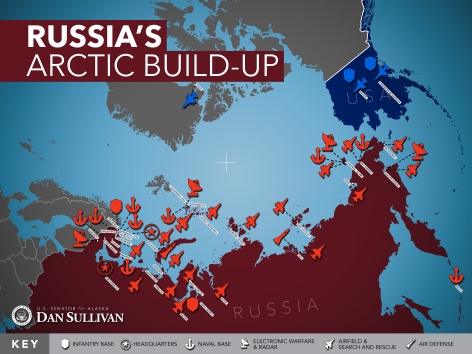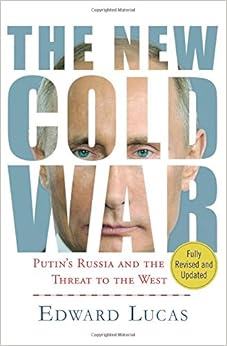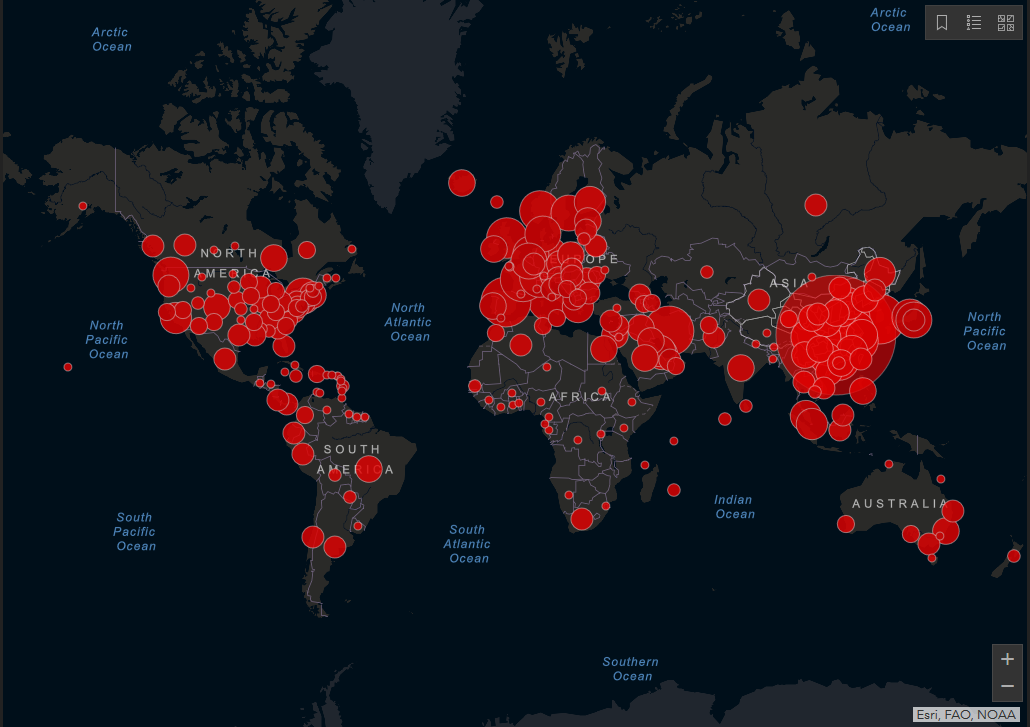> Fresh from his whirlwind tour of the USA–where he inked a secret protocol on defense cooperation with the Pentagon and inspected America’s nuclear subs at the Naval Submarine Base Kings Bay–Russia’s top general is again threatening his “strategic partners” in the White House. “The issue of, to put it mildly, a confrontation with Russia, including a direct confrontation, is unfortunately still regarded by my counterparts from the Pentagon as relevant,” General Yuri Baluyevsky complained two days ago in Moscow. In other words, the USA is a warmongering power and Russia must protect itself by whatever means necessary. The Kremlin’s Cold War-era, “anti-imperialist” rhetoric has not deviated one iota since the fake collapse of communism in 1991.
Fresh from his whirlwind tour of the USA–where he inked a secret protocol on defense cooperation with the Pentagon and inspected America’s nuclear subs at the Naval Submarine Base Kings Bay–Russia’s top general is again threatening his “strategic partners” in the White House. “The issue of, to put it mildly, a confrontation with Russia, including a direct confrontation, is unfortunately still regarded by my counterparts from the Pentagon as relevant,” General Yuri Baluyevsky complained two days ago in Moscow. In other words, the USA is a warmongering power and Russia must protect itself by whatever means necessary. The Kremlin’s Cold War-era, “anti-imperialist” rhetoric has not deviated one iota since the fake collapse of communism in 1991.
U.S. antimissile launch may provoke counterattack – army chief-2
18:3315/ 12/ 2007
MOSCOW, December 15 (RIA Novosti) – A possible U.S. launch of an interceptor missile from Central Europe may provoke a counterattack by intercontinental ballistic missiles, Russia’s top military commander said.
“If we suppose that Iran wants to strike the United States, than interceptor missiles, which would be launched from Poland, will fly towards Russia,” the Chief of the Russian General Staff, Gen. Yury Baluyevsky said, adding that the shape of interceptor missiles and their flight trajectory are very similar with IBMs.
Washington wants to place a radar in the Czech Republic and 10 missile interceptors in Poland, purportedly to counter a missile threat from Iran and other “rogue” states. Moscow has responded angrily to the plans, saying the European shield would destroy the strategic balance of forces and threaten Russia’s national interests.
The top Russian military official said Russia operates automated missile warning systems, which could respond automatically in case the U.S. fires an antimissile across Russia against a possible ballistic missile form Iran.
He added that the U.S. also still keeps high on the agenda an issue of a possible global confrontation with Russia.
“The issue of, to put it mildly, a confrontation with Russia, including a direct confrontation, is unfortunately still regarded by my counterparts from the Pentagon as relevant,” he said adding that the U.S. missile shield plans in Central Europe are aimed to change the current security system in Europe and not against possible strikes from “rogue states.”
He said the formation of the Third Site in Poland and the Czech Republic is a destabilizing factor in Europe and Russia will do everything possible to prevent a decrease in its national defense capability.
“Depending on the situation we [Russia] plan to take adequate and asymmetrical measures aimed to prevent a drop in national defense capabilities,” Baluyevsky said adding that the U.S. proposals on the missile shield are unacceptable for Russia.
“We believe that Russia’s opinion should be heard and taken into account concerning such important issue as the missile shield in Europe,” he said. “We speak for the dialogue, but under the condition that the problem will not be complicated by unilateral steps in this sphere.”
Russia has offered the U.S. use of radar stations at Gabala in Azerbaijan, and Armavir in south Russia, as alternatives to missile shield deployment in Central Europe. Washington said, though, it could use these radars only as additional components of the European shield.
Speaking about the Conventional Forces in Europe treaty, Baluyevsky said that European states have turned the treaty into a tool of political pressure.
“Western countries have deliberately turned a regime of arms control into a tool for achieving political aims,” he said.
The law to freeze Russia’s participation in the CFE treaty was unanimously approved by parliament and signed on November 30 by President Vladimir Putin. Russia’s unilateral moratorium came into force immediately after midnight on Wednesday.
Moscow considers the original CFE treaty, signed in December 1990 by 16 NATO countries and six Warsaw Pact members, to be discriminatory and outdated since it does not reflect the dissolution of the Warsaw Pact, the breakup of the Soviet Union, or recent NATO expansion.
Baluyevsky said that after the moratorium came into force Russia has the full right to move its military units across the country the way it prefers, but the country does not plan to increase weapons stock.
NATO said in a statement Wednesday that it regretted Russia’s decision to impose a moratorium on the arms reductions treaty, which the West regards as a cornerstone of Euro-Atlantic security, and urged Moscow to reverse its decision.
Russia has urged NATO countries to ratify the adapted version of the treaty, signed on November 19, 1999 and so far ratified only by Russia, Ukraine, Belarus and Kazakhstan.
Source: Novosti
 At least three factors are now attacking the total credibility of Washington’s proposed NMD deployments in Poland and the Czech Republic.
At least three factors are now attacking the total credibility of Washington’s proposed NMD deployments in Poland and the Czech Republic.
First of all, the Polish government’s position is ambivalent. On the one hand, Prime Minister Donald Tusk, responding to Baluyevsky’s rumblings, retorted: “When I hear the words of a Russian general about an automatic reaction, that recalled the worst of times to me. Remarks of that type are impermissible, because no Russian general is going to influence Polish-U.S. negotiations on the question.” On the other hand, Polish Defense Minister Radoslaw Sikorski has said: “We have not yet reached a conclusion as to whether the anti-missile shield is necessary.” Tusk, who plans to visit Moscow in the near future, coddled the Russian Bear in November:
You will be pleasantly surprised by how quickly Polish-Russian relations will improve. There are no doubts – and the first signals [from Moscow] indeed show that in the [past] 24 hours, these relations have been improved far more effectively than during the past two years. Absence of dialogue does not serve the interests of either Poland or Russia. It harms the reputations of both countries.” I am convinced that the time for positive changes on this issue is now… The signals from our eastern neighbor confirm that this point of view is developing over there as well.
Like many “rightist” politicians throughout “post”-communist Eastern Europe, Tusk began his career in communist-controlled democratic opposition organizations, in this case first the Liberal Democratic Congress, which had its origin in the potemkin Independent Self-governing Trade Union “Solidarity,” and then the Freedom Union (UW). In January 2001 some members of the UW’s “right wing” decided to join the new Civic Platform. At the same time, “ex”-communist Bronisław Geremek was a well-known member of the UW. Geremek and communist stooge Tadeusz Mazowiecki are now prominent members of the Democratic Party, which was organized in 2005 through a merger of the UW and some “ex”-communists from the Democratic Left Alliance. The Democratic Party, tellingly, has been critized for refusing to support the lustration of communists from the Polish bureaucracy.
With suspicious pro-Moscow sympathies such as this, the Tusk government might lose all interest in hosting US missile interceptors or, if the whole issue is a Kremlin-concocted provocation in concert with pro-communist allies in Central Europe and the USA’s political elite in the Council on Foreign Relations, it may be that Warsaw will offer its final approval to Washington and thereby provoke a “justifiable” military response from Russia.
Second, the Czech government’s position is also ambivalent. The Associated Press reported on December 6: “‘Czech newspapers are full of headlines saying there is no longer a need for missile defense,’ said Tomas Klvana, the Czech government’s coordinator for missile defense communication, who is in Washington for talks with administration officials and lawmakers. ‘It is hard for complex arguments to win against simple headlines.'”
Finally, US intelligence is now admitting that Iran has no active nuclear weapons program, which was the original stated reason for deploying US missile interceptors and radar facilities in Central Europe. The White House stridently denied that Russia was the country against which the USA was seeking to defend itself from missile attack. On December 4 the Los Angeles Times reported:
U.S. intelligence agencies have concluded that Iran halted its nuclear weapons program in 2003 and that international pressure has compelled the Islamic Republic to back away from its pursuit of the bomb.
The new findings represent a retreat from a fundamental U.S. assumption about one of its main adversaries, and an admission that a central component of previous intelligence estimates on Tehran’s nuclear program was wrong. But the report makes it clear that Iran could decide at any point to resume its efforts to develop a nuclear weapon.
The article rightly notes that the “new findings represent a retreat from a fundamental U.S. assumption about one of its main adversaries.” Indeed. “As recently as October,” journalist Greg Miller writes, “President Bush was warning that a nuclear-armed Iran could lead to World War III, and Vice President Dick Cheney threatened Tehran with ‘serious consequences’ if it did not abandon its nuclear program.” It appears that the Bush Admin was wrong, at least from the general public’s perception, about Saddam Hussein’s nuclear ambitions and is again wrong about Mahmoud Adhmadinejad’s. Notwithstanding these glaring difficulties in the Bush Admin’s NMD policy, the Pentagon is pressing ahead with this ill-conceived program, which does nothing to effectively deter a massive first strike by neo-Soviet Russia.
All of these bizarre twists and turns beg the question: Who is formulating the White House’s blunder-ahead-and-then-retreat-with-tail-between-legs strategy? Answer: Who benefits from Washington’s blunders? The pro-communists at the Council on Foreign Relations and Moscow’s Leninist masterminds.
 Meanwhile, neo-Soviet Russia continues her rapid remilitarization by flexing some ICBM/SLBM muscle in the Barents Sea. State-run Itar-Tass reports:
Meanwhile, neo-Soviet Russia continues her rapid remilitarization by flexing some ICBM/SLBM muscle in the Barents Sea. State-run Itar-Tass reports:
The Tula nuclear-powered ballistic missile submarine of Russia’s Northern Fleet on Monday carried out a combat training launch of an intercontinental ballistic missile. Chief of the information and public relations service of the Russian Navy Captain Igor Dygalo said, “The underwater launch of the intercontinental ballistic missile was carried out from the Barents Sea on a target at the Kura range on the Kamchatka Peninsula.” “The launch has been carried out under the combat training schedule for checking the combat readiness of the Naval Strategic Nuclear Forces,” Dygalo specified. “The missile’s warhead hit the target at the range at the designated time,” he said.
State-run Voice of Russia also reports that the Russian Strategic Missile Forces have deployed its second battalion in central Russia with the intent of becoming “an out-of-reach target for enemy interceptors”: “A second battalion, equipped with silo-based Topol-M mobile missile complex, is to be put on combat duty in central Russia on Sunday. With tremendous boosting speed and unpredictable flying trajectory, Topol-M missile is bound to become an out-of-reach target for enemy interceptors. The first Topol-M mobile missile battalion entered duty late last year.” After 2009, moreover, Russia will double its ICBM launches, reveals Strategic Missile Forces commander Colonel General Nikolai Solovtsov. The purpose of this intensification of missile capacity is not hidden. Gen. Solovtsov has stated: “If US missile defense elements are deployed in Poland and the Czech Republic, Russia’s Strategic Missile Forces could aim long-range missiles at these sites.” Russia will test-launch 11 ICBMs in 2008.
Russia to double ICBM launches after 2009 – commander
18:2517/ 12/ 2007
VLASIKHA (Moscow Region), December 17 (RIA Novosti) – Russia will double its test launches of intercontinental ballistic missiles after 2009, the Strategic Missiles Forces (SMF) commander said on Monday.
“The number of launches will almost double after 2009 or 2010,” Colonel General Nikolai Solovtsov told a news conference.
He said Russia is putting an average of three mobile and three or four fixed-site missile launching systems into operation every year.
He said new missile systems to be adopted soon by the SMF would enable the force to infiltrate any defenses, even those that have not been established yet, but did not specify the systems.
The general said that if U.S. missile defense elements are deployed in Poland and the Czech Republic, Russia’s Strategic Missile Forces could aim long-range missiles at these sites.
“We have to take appropriate measures to prevent the weakening of Russia’s nuclear deterrence under any circumstances. And I do not rule out that… some intercontinental ballistic missiles could be aimed at these Polish and Czech facilities,” Gen. Solovtsov told journalists.
Russia will operate 48 fixed-site Topol-M (NATO reporting name SS-27) ballistic missiles by the start of 2008, an SMF spokesman said.
The SMF said previously that the system will be equipped with multiple independently targetable reentry vehicles (MIRV) in the next two or three years, adding the new system will help penetrate missile defenses more effectively.
As of December 2006, Russia’s SMF operated 44 silo-based and three mobile Topol-M missile systems.
Col. Alexander Vovk also said Russia will conduct 11 launches of intercontinental ballistic missiles in 2008.
“A total of 11 combat training and test launches of intercontinental ballistic missiles are planned to be conducted next year,” he said.
He said the adoption of a new ICBM, RS-24, would greatly strengthen the SMF’s strike capability and Russia’s nuclear deterrent, as well as that of its allies until the mid-21st century.
Source: Novosti

Finally, Russia is dusting off its old Soviet-era base in
Svalbard which, according to
Aftenposten, is “another sign that Moscow wants its presence felt in strategic Arctic areas.” The international
Svalbard Treaty (1920) granted sovereignty over the Arctic archipelago to Norway, but also permitted the then-young Soviet Union to hold onto its mining settlement in
Barentsburg, which currently boasts 600 Russian and Ukrainian residents. “The Russians want to make their presence known, and be seen as a major power,” observes Julie Wilhelmsen of the Norwegian Institute of International Affairs. “Their heightened interest in Svalbard is an extension of the stepped-up military activity in the Arctic and North Sea.” Indeed.
Russians renew their interest in Svalbard
First published: 17 Dec 2007, 14:44
Russia is beefing up its presence on Svalbard, another sign that Moscow wants its presence felt in strategic Arctic areas. Norway has internationally recognized authority over the Svalbard archipelago but Russia has long had a presence on the Svalbard island of Spitsbergen as well. Its communities at Barentsburg and Pyramiden, though, fell onto hard times in the 1990s.
Now, says the Norwegian governor of Svalbard Per Sefland, the settlements are getting lots of attention from Moscow, and investment as well.
“It’s clear that the Russians are in the process of strengthening their presence here,” Sefland told newspaper Aftenposten. “And it’s increasingly clear that it’s the official Russia that’s involved.”
The Russians, he said, have plans for business development and increased activity on Svalbard. They have presented him with plans for their own airport, a new coal mine and a fishing terminal. The Russian population at Barentsburg is expected to increase.After 10 years of inactivity and neglect, the settlement at Pyramiden is also springing back to life. Restoration work is already underway on the town’s infrastructure and hotel.
“We think they’re planning on tourism, and the hotel will be put into use,” Sefland said.
Top Russian officials have themselves said that Russia has “strategic interests on Svalbard that will be taken care of,” and political observers have no doubts they will.
“The Russians want to make their presence known, and be seen as a major power,” said Julie Wilhelmsen of the Norwegian Institute of International Affairs (Norsk utenrikspolitisk institut, NUPI). She views their heightened interest in Svalbard as an extension of the stepped-up military activity in the Arctic and North Sea.
“Now the country has the capacity to carry out its plans,” Wilhelmsen said. “It’s crystal clear that they’re making their ‘outer districts’ a priority. It’s both symbolically and strategically important for them.”
























































